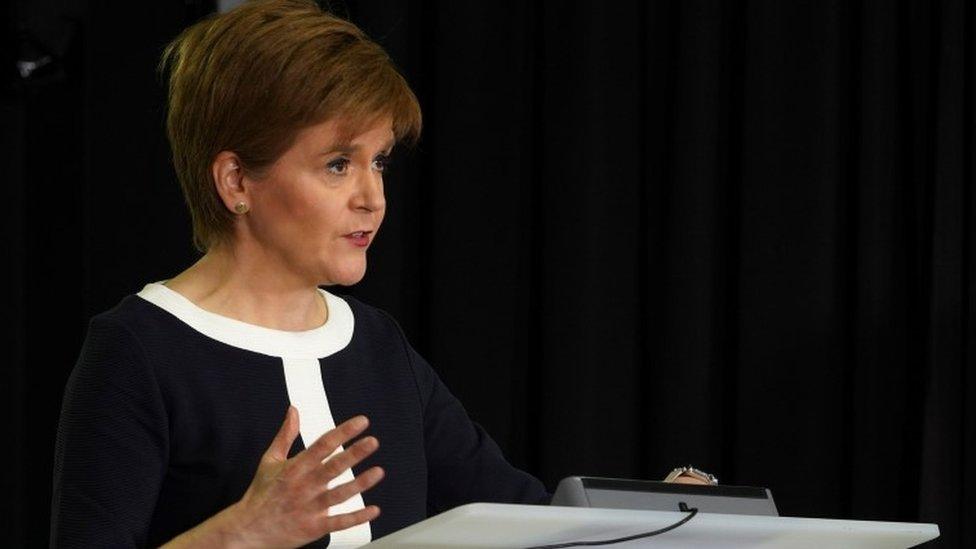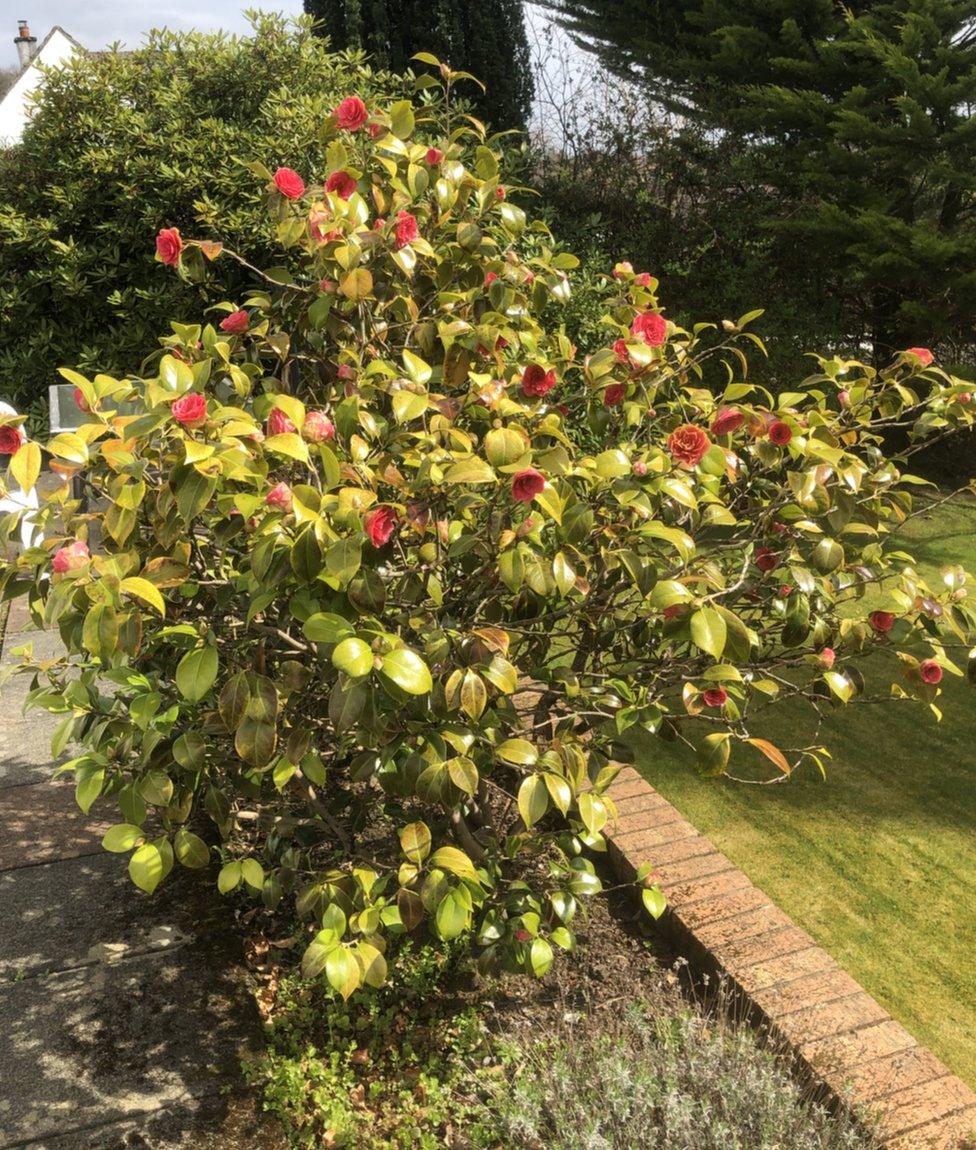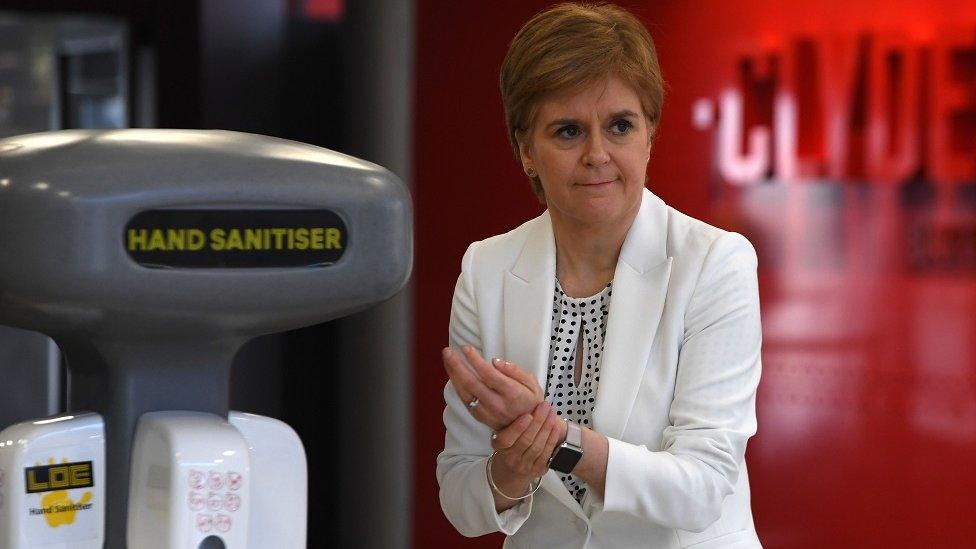Coronavirus: Nicola Sturgeon abandons the pretence
- Published

Nicola Sturgeon has constantly stressed that she may have to change tack
Perhaps it is the miasma of partisan politics. Perhaps it is scrutiny from the wicked media. Perhaps it is instinctive.
Whatever the cause, political leaders generally like to exude certainty. They will say: "I believe I have been completely clear about this" Or: "Let me assure the House……"
By contrast, many ministers of my acquaintance have been in an honourable lather of uncertainty much of the time. That is because the decisions confronting them are tough, really tough.
But they pretend otherwise. They fear to let it seem that they are havering or dovering, to use two fine Scots words.
Nicola Sturgeon has, to a large extent, abandoned the pretence. In all her remarkable pronouncements during this quite remarkable period, she has constantly stressed that she may have to change tack, that she is open to other ideas.
That she is, in short, uncertain. Indeed, she used the word "uncertainty" repeatedly today as she set out her framework for a possible exit strategy.
She could not be sure when lockdown would be lifted. She could not be sure when a drug or a vaccine would emerge. She could not be entirely certain about the impact of future policies.
This was honesty, painful frankness from the first minister. And with a purpose. She wants us on her side. She needs us, the public, to engage in discourse about where we go next.
Firstly, to bring out ideas. But, secondly, because we will be more inclined to observe the constraints which will still be necessary if we feel we have played a part in formulating them.
If we feel that this is a collective decision for the common weal, rather than a dictat handed down.
The new normal
But what a scenario she painted. Even after lockdown is eased, there will be a need for social distancing. That will affect business, sport, arts, leisure and schools.
This will be the new normal, if such a thing can be envisaged.
Ms Sturgeon acknowledged that she had perhaps been somewhat surprised by the extent of compliance with the lockdown. She would not have anticipated such ready backing.
But now, acting on scientific advice, she is asking for more. For continuing constraint. This will be, to use a word she also deployed frequently, tough.
It was a powerful performance by a first minister who is plainly working night and day on this issue, disdaining common politics.

My camellia is now full of buds

For example, she was asked in the opening question what she thought of the UK government's performance. It was an invitation to give Downing street a kicking. She demurred, sticking to her own record.
She was asked whether she could envisage Scotland going it alone on easing lockdown. She could - and was acutely aware of Scotland's distinctive needs.
But she wasn't pushing this. I think she is aware also of the possibility of confused messages for the public. She said - whether it was Scotland or the UK - what counted was tackling the virus.
And that was a section of her remarks which struck me. There was no acceptable proportion of infection. We could not let the disease rip. We had to counter it, to defeat it.
That was the primary concern. At the same time, we could not persist in total lockdown for ever and a day. There would be nothing left of the economy and precious little in the way of societal structure.
As I wrote here before, it is a question of balance. Against this horrid, vicious virus.
To close, a garden update. My camellia is now laden with open buds. To everything, there is a season.
- Published23 April 2020

